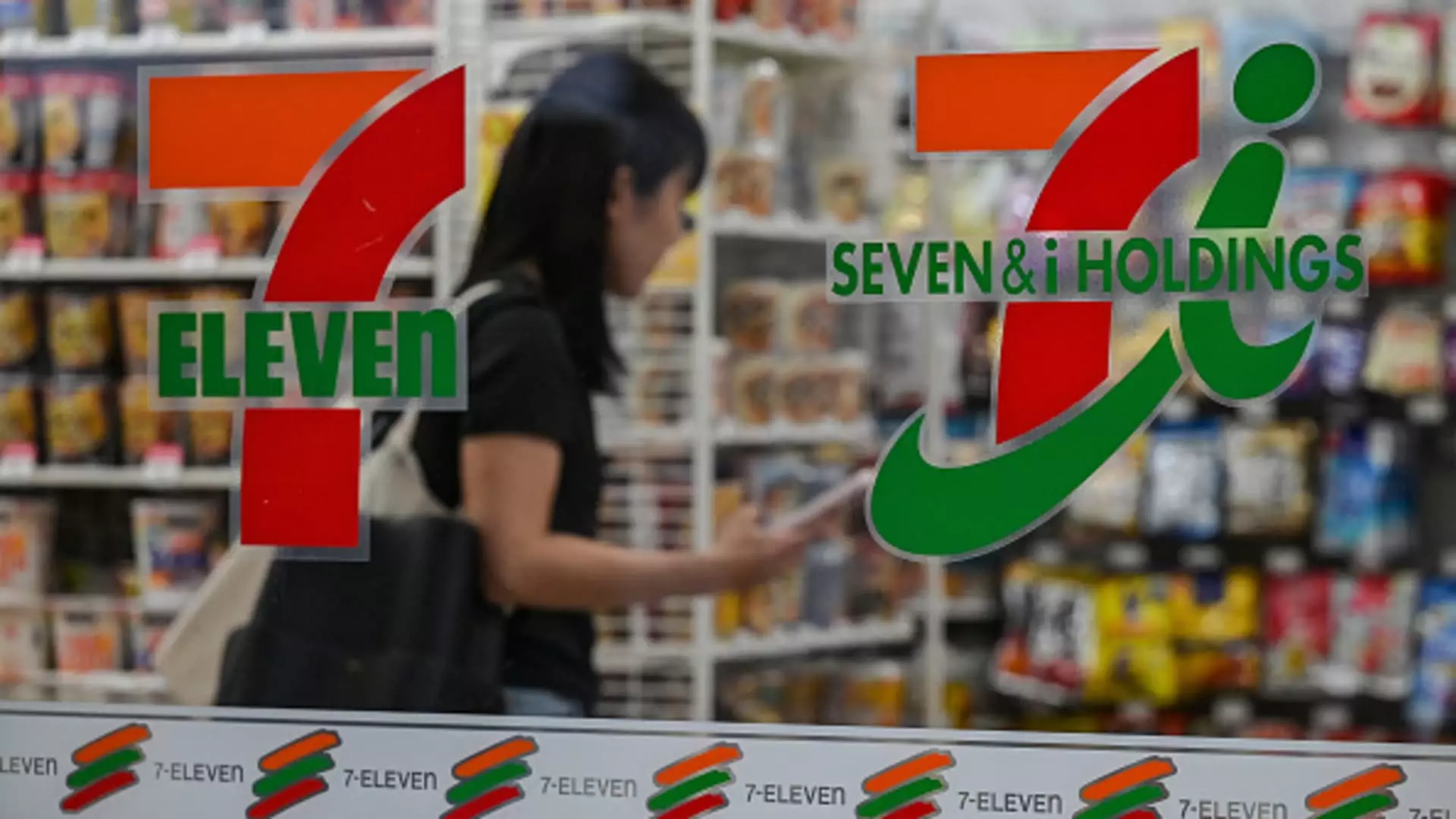Seven & i Holdings, the prominent Japanese convenience retailer known for its flagship 7-Eleven stores, has recently unveiled substantial reductions in its earnings forecasts, eliciting concerns about its future stability. The company has revised its anticipated net income for the fiscal year ending February 2025 to approximately 163 billion yen (around $1.09 billion), representing a staggering 44.4% drop from its earlier estimate of 293 billion yen. This downward revision aligns with the company’s disappointing performance in the first half of the fiscal year, where it reported a net profit of just 52.24 billion yen on revenues of 6.04 trillion yen, falling short of its own guidance of 111 billion yen.
In light of these financial setbacks, Seven & i has initiated a restructuring plan aimed at spinning off its non-core operations into a standalone subsidiary. The company’s intention to streamline its portfolio comes not only as a reaction to plummeting profits but also amid increasing pressure from investors seeking to bolster shareholder value. By consolidating its operations and separating less profitable ventures, Seven & i hopes to refocus on its core business areas, enhancing operational efficiency and overall profitability.
The downturn in profits can, in part, be attributed to reduced customer turnout at overseas convenience store locations. Seven & i cited a shift toward more prudent consumption habits among consumers, particularly in turbulent economic climates. The company’s efforts to address declining customer traffic coincide with its struggles in international markets, where competition has intensified, and consumer preferences are evolving.
To exacerbate matters, Seven & i recently recorded a charge of 45.88 billion yen associated with its decision to separate the Ito-Yokado Online Supermarket. This move, while aimed at addressing inefficiencies, has added another layer of complexity to its ongoing operational challenges. The company is under increasing scrutiny as it balances the need for restructuring with the imperatives of maintaining its international presence.
As Seven & i attempts to navigate through financial turbulence, it faces external pressures in the form of a potential takeover bid from Alimentation Couche-Tard, a Canadian operator of convenience stores. After initially rejecting a buyout proposal positioned at $14.86 per share, Seven & i reaffirmed its commitment to act in the best interests of its shareholders, citing concerns regarding U.S. antitrust regulations. In its effort to protect itself from a foreign takeover, Seven & i sought a new designation as a “core business” under Japanese regulations, implying increased scrutiny for any foreign entity interested in acquiring a stake in the company.
The recent escalation of the takeover dialogue escalated when Seven & i received a revised bid from Couche-Tard, which increased the offer to approximately $18.19 per share. If this deal were to materialize, it could reshape the current landscape of Japanese retail, marking one of the largest foreign acquisitions in the country’s history. Despite this increased offer, a wave of skepticism remains regarding the likelihood of a successful acquisition, partly due to Japan’s complex legal environment and potential pushback from Seven & i’s management.
The market response to Couche-Tard’s overtures has been notable, with Seven & i’s shares climbing over 33% since the initial takeover interest was disclosed. This uptick in share price may reflect a growing recognition among investors of the potential value in combined operations and the strategic advantages that a partnership could present. Nevertheless, sentiment remains mixed among shareholders who may feel frustrations over management’s hesitance to engage more proactively with the suitor.
In addition to external pressures, Seven & i’s strategic responses will be pivotal in determining its future trajectory. Analysts suggest that management must now weigh the allure of short-term financial gains against the long-term strategic vision for the company. As shareholders grow weary of a stagnant negotiation process, the possibility of an activist investor stepping in to demand changes could add additional urgency for Seven & i’s board to consider the merits of the acquisition.
Seven & i Holdings stands at a crossroads, grappling with internal financial challenges while simultaneously facing external pressures from a potential takeover. The company’s proactive restructuring efforts, though critical for long-term survival and success, highlight both the complexities of its operational environment and the shifting dynamics of the retail sector. As it maneuvers through these turbulent waters, all eyes will remain on how its leadership responds to shareholder demands and competitive threats in the evolving marketplace. The strategic choices made in the coming months could very well alter the trajectory of this storied retail giant.

